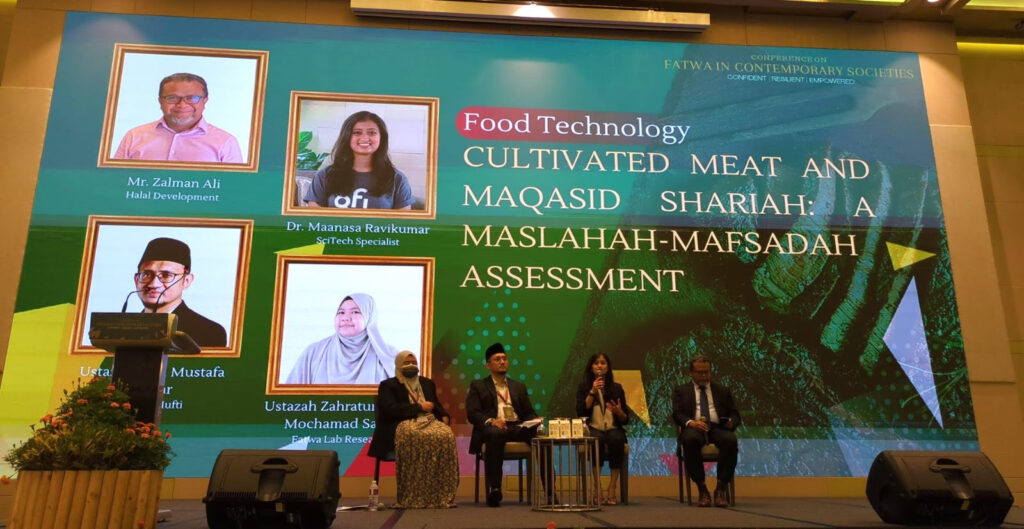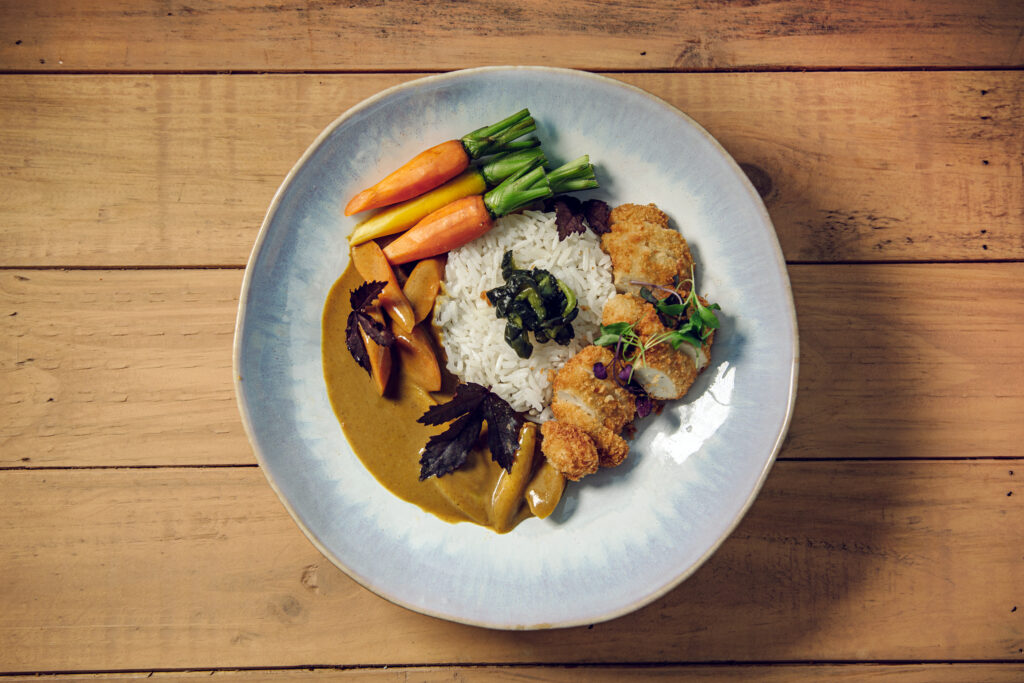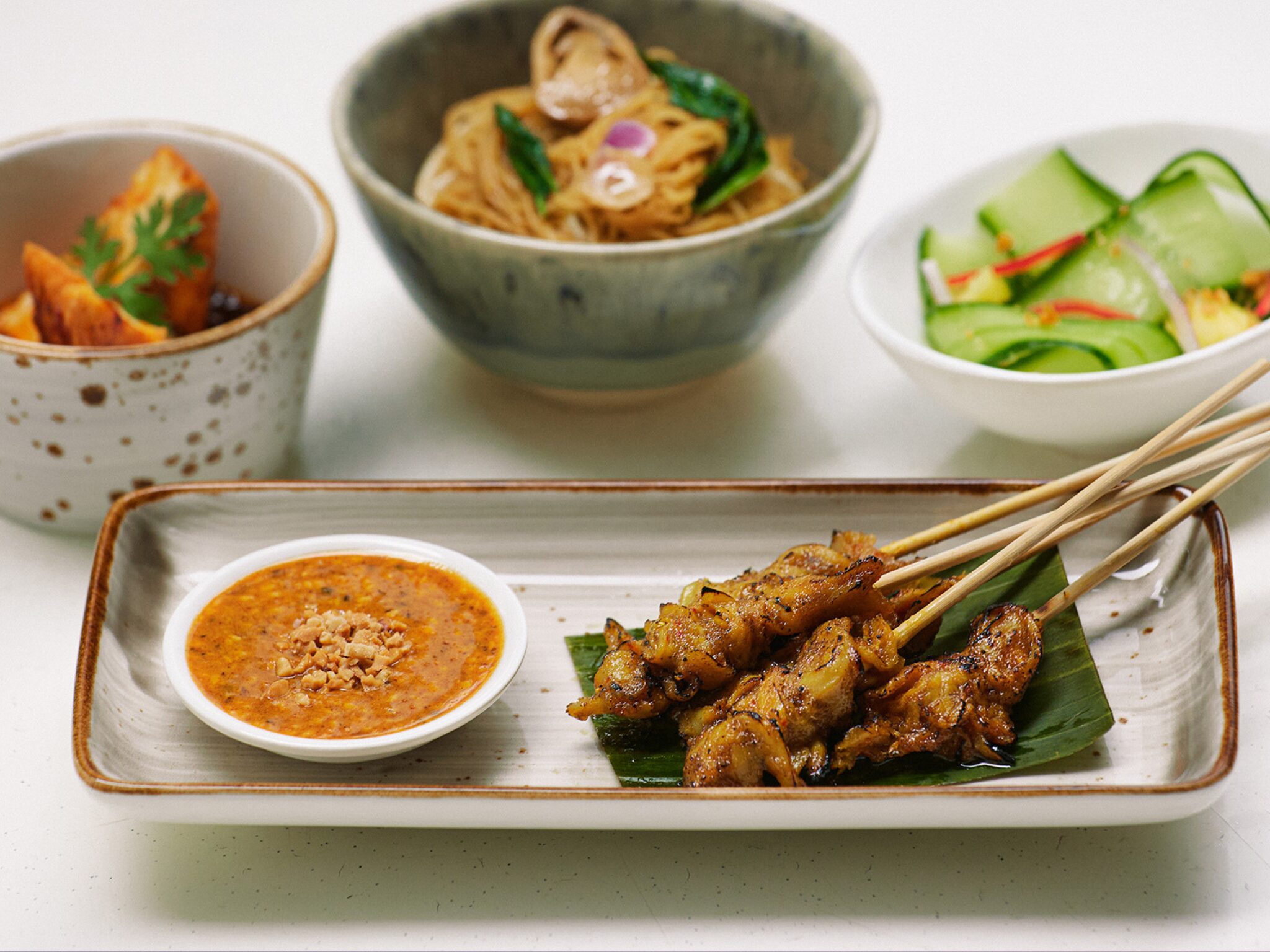Singapore’s Islamic Council Rules Cultivated Meat as Halal Under the Right Conditions
5 Mins Read
The Islamic Religious Council of Singapore has issued a fatwa declaring that cultivated meat is generally halal, and Muslims can eat these products as long as they adhere to halal standards.
The Fatwa Committee of the Majlis Ugama Islam Singapura (MUIS) has announced that cultivated meat can be considered halal, and the country’s Muslims are allowed to consume it if certain conditions are met.
The sole entity with the legal power to issue halal certificates in Singapore, Muis’s fatwa ruled that cultured meat can be halal if the cells are sourced from animals Muslims are allowed to consume (for example, chicken but not pork), and there’s no mixing of non-halal components in the manufacturing process.
The ruling was issued at Muis’s Fatwa Conference on February 3, and marks an important next step for cultivated meat’s progress in a country that first approved its sale in 2020, and 15.6% of whose citizens are Muslim. Halal diets refer to food consumption in accordance with Islamic law – when it comes to meat, it means animals must be slaughtered in a prescribed way, and certain types of meat and byproducts – including pork and blood products – are prohibited.
The halal conditions cultivated meat must follow

The fatwa comes after over a year of deliberation by the Islamic council, which – supported by the Office of the Mufti – consulted stakeholders like the Singapore Food Agency, industry bodies like the Good Food Institute (GFI) APAC, and scientists and other experts. Plus, Muis visited a local cultivated meat production facility, with scholars perusing the matter from all angles of the Islamic perspective, and taking into account Singapore’s “socio-religious realities”.
While presenting the results of the study on Saturday, the Fatwa Committee outlined the environmental and food security benefits of cultivated meat, finding that its pros outweigh any perceived cons. Muis said its fatwa was underpinned by the Islamic principles that it serves to preserve human life and protect the environment. “The fatwa also considers the Islamic legal principle that unless proven otherwise, whatever is beneficial is permissible,” it added.
The religious guidance on cultivated meat consumption was developed due to questions of permissibility for Muslims after the SFA approved the sale of GOOD Meat’s cultured chicken in 2020. Considering the global impetus to find alternative, sustainable food solutions and the emergence of novel food, it is necessary to establish a clear religious position from the outset in order to facilitate any future plans for the halal certification of cultivated meat,” said Muis.
The Fatwa Committee studied three inter-related aspects – the source of the meat, the production process, and the ingredients used – and outlined requirements stipulating that the cell lines should be from a species permissible to eat for Muslims, every ingredient making up the texture and composition of the cultivated meat should be halal, and the product must be clean and non-toxic. These guidelines largely align with those released by Shariah scholars in Saudi Arabia in September.
“Building a truly inclusive, efficient and secure protein production system requires making high-quality, nutrient-rich, and culturally relevant foods available to every facet of society,” said Mirte Gosker, managing director of GFI APAC. “With Muis’s precedent-setting announcement, Singapore is bringing that bold vision one step closer to reality.”
Halal consumers represent 25% of the world’s population, and the halal meat market is estimated to grow by 7% annually to reach $375B in 2031. Research has found that the most important consideration for Singaporeans around cultivated meat is that it must be halal before it is consumed, with some raising concerns about whether its production can be halal, especially if they’re located close to facilities making cultured pork or other prohibited meats.
The study further suggested that participants unanimously expressed trust in Muis to determine the halal status of cultivated meat, believing its opinion to be comprehensive. “They are doing the right thing as a Muslim authority and speaking on behalf of all Muslims in Singapore,” one respondent said.
Singapore to create halal certification for cultivated meat

Now, Muis plans to work with government bodies like the SFA and industry stakeholders to develop guidelines for halal certification of cultivated meat – a move that would be welcomed by the sector. A 44-company survey by GFI APAC last year revealed that complying with halal requirements was a priority for 87% of the businesses. But a lack of resources outlining how products can adhere to such religious certifications would prove to be a significant entry barrier, the study added.
Currently, no cultivated meat approved for sale on the market satisfies the council’s halal guidance yet, according to GFI APAC. While the timeline for the halal certification depends on the complexity of certifying the products, Muis explained that any locally produced halal-certified cultured meat would be available only for local sale and consumption – exports are only possible if other countries have approved the sale of these products (the US and Israel are the only others to have done so).
“Companies applying for Muis Halal Certification must have a facility producing cultivated meat products in Singapore,” the council added. “This is the same principle applied to conventional meat-producing facilities. The halal status of imported raw materials and processing aids from overseas which are used locally must be substantiated with the appropriate halal supporting documentation, depending on the risk category, and not the country of origin.”
The fatwa mentioned that the guidelines are intended to ensure that halal dietary rules are followed and maintained. But it added: “In all cases, Muslim consumers make their own informed choice whether to patronise any halal-certified eating establishment or consume any halal-certified food product.
“Similarly for cultivated meat, if it is halal-certified, Singapore Muslims can choose whether to consume or otherwise. Actual Muslim consumer acceptance of cultivated meat will also depend on other considerations like personal dietary preferences, taste, and cost.”
Gosker said: “More than a billion people around the world adhere to halal food standards, so for cultivated meat to make the leap from novelty to the norm, it is crucial that there are viable pathways to achieve this certification.”
Muis’ fatwa follows the aforementioned advice from three leading Shariah scholars in Saudi Arabia, which told GOOD Meat that cultured meat can be considered halal if it meets certain criteria. And in 2022, the Assembly of Muslim Jurists of America adjudged cultivated meat as provisionally permissible by default, provided Halal criteria are followed.
In terms of other religious guidance, Israel’s chief rabbi David Lau declared last January that local producer Aleph Farms’ non-FBS steak could be considered kosher and akin to eating a vegetable (parve). This wasn’t a kosher certification, however, and the company is now pursuing one for its facility from local rabbinate authorities.




